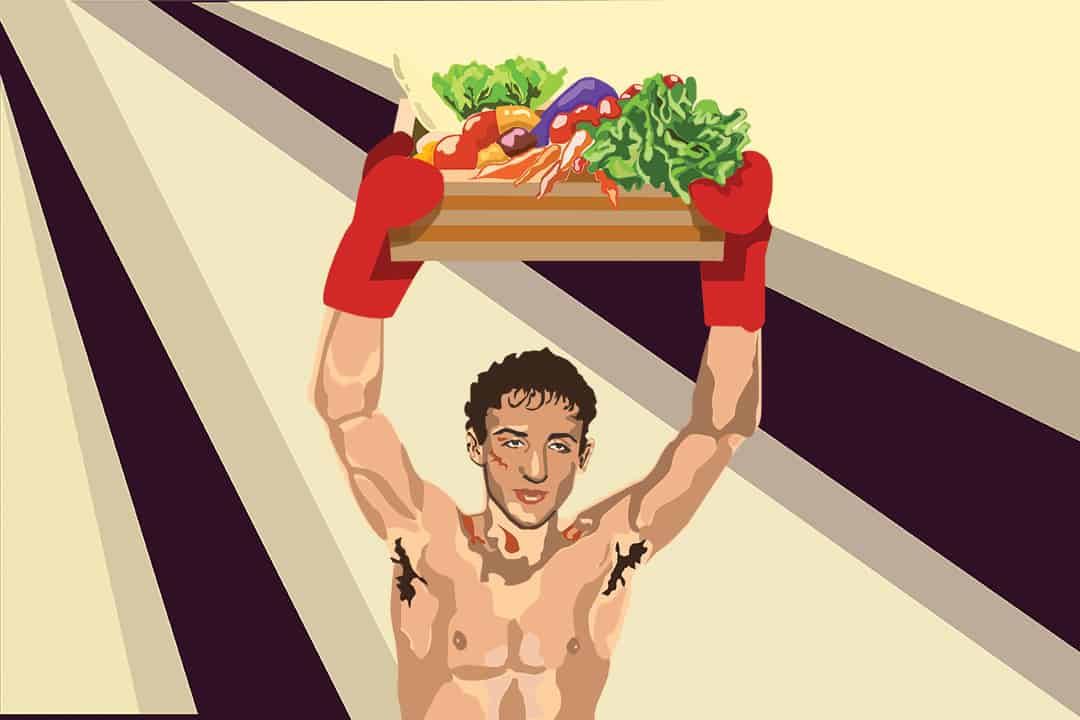What do Lewis Hamilton, Venus Williams, Nate Diaz, and Laurence Okolie all have in common? They’re all world class athletes who have begun to promote vegan diets. The diverse range of sports these athletes participate in indicates the various benefits and applications of such a diet. However, despite the advocacy of athletic superstars, vegan diets are not without their challenges.
One of the biggest areas of concern with regard to athletes switching to vegan diets is the lower levels of energy they may endure. The restriction of animal products results in a lower calorie count that can become a problem for athletes, as they require a higher calorie intake than most. This is due to the smaller concentrations of protein found in plant-based foods in comparison to animal foods. Additionally, the high amounts of fibre found in plant-based foods can lead to one feeling satiated faster.
This lower intake can result in substandard performance, as well as inadequate recovery. Athletes involved in bodybuilding or weightlifting may struggle due to difficulties in gaining and maintaining weight, as well as building muscle.
While lower levels of energy due to lower intake of calories and proteins may present an obstacle for athletes, it is one that can be circumvented. Through careful planning, a vegan diet can meet the calorie needs of athletes through frequent meals. There is an abundance of protein and meat substitutes, including tofu, quinoa, legumes, and seitan.
Some athletes may require the lower-calorie diet plant-based foods provide, as leaner body mass is preferable for better athletic performance in certain sports. For a Formula One
(F1) athlete, too much body mass can be counterproductive as the driver’s mass can begin to slow the car down. Thus, drivers are encouraged to keep their weight at or below 161 pounds. Combat sports athletes also benefit from the lower calorie intake as it can make the gruelling weight cut much easier. A vegan diet can allow fighters to slowly adjust their weight to a lower level while maintaining the advantages of a bigger frame.
Plant-based foods are also rich in carbohydrates, something animal products often lack. Carbohydrates are extremely important for athletic performance and are the primary source of energy for muscles. Studies also show that increased carbohydrate intake can improve endurance due to more efficient glycogen storage. Athletes on vegan diets have also been found to have increased aerobic capacity, which further contributes to their endurance. This is extremely beneficial for athletes such as Diaz, who can last for the full 25 minutes of a five round MMA fight and has been praised for his incredible cardio. Okolie, the World Boxing Organisation’s cruiserweight boxing champion has also credited his diet for providing him energy without the strain of processing meat.
Vegan diets are also higher in antioxidants than their animal counterparts. The high intensity exercise athletes perform and the lack of rest they receive all contribute to internal inflammation. The abundance of antioxidants in plant based foods can reduce oxidative stress, in turn reducing the needed recovery time. The touted F1 driver Hamilton has credited his diet for changing his life, stating “I wake up feeling way better, clearer in thought and fresher in my body. I recover quicker; I sleep better.” Antioxidants are also effective for maintaining a training regiment due to the reduced chances of illnesses, with Hamilton expressing how his diet has reduced his allergies and cleared up his skin.
Vegan diets have proven to be effective in increasing endurance, recovery, and reducing body fat due to the abundance of carbohydrates, antioxidants, and reduced calorie intake respectively. With an abundance of prominent figures in the sports world advocating for vegan diets, with the right reasons and enough research, it may prove a useful switch for aspiring athletes.


